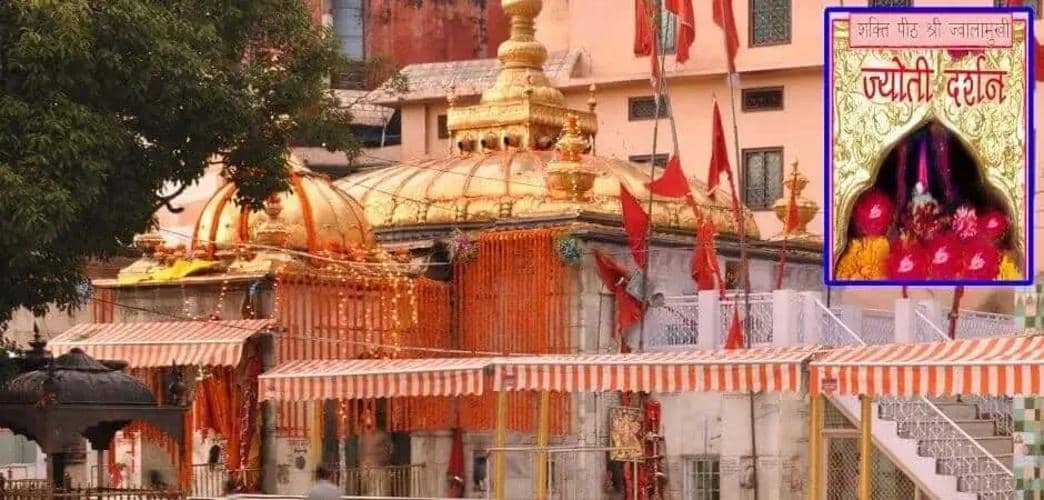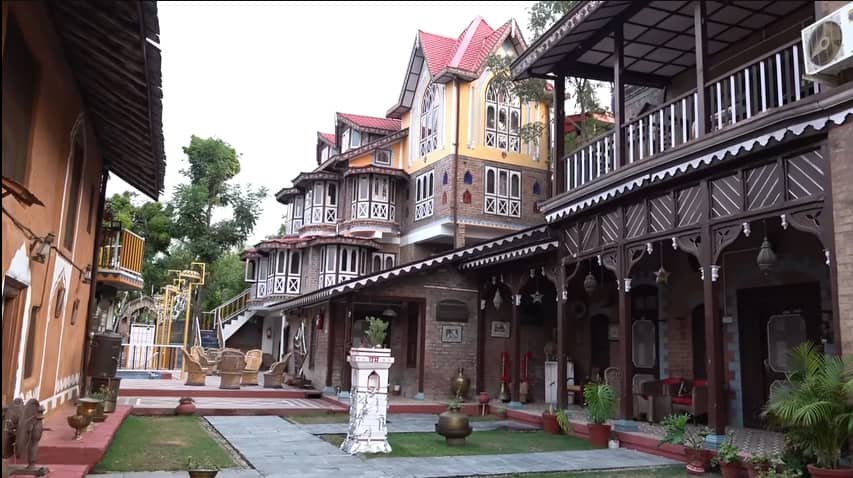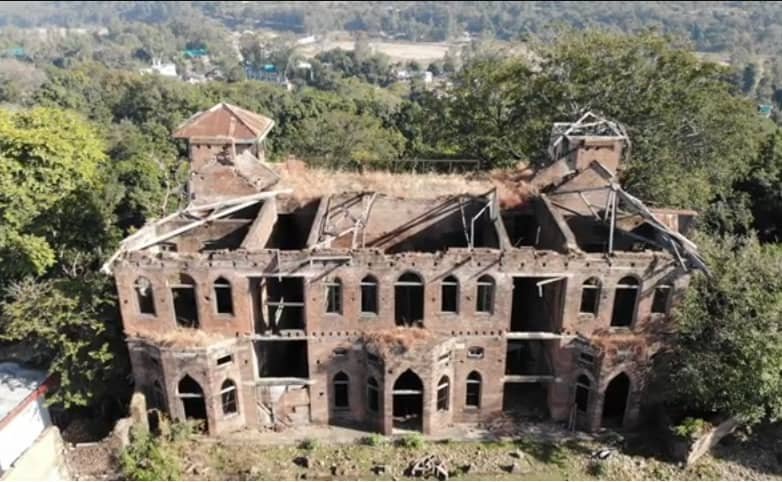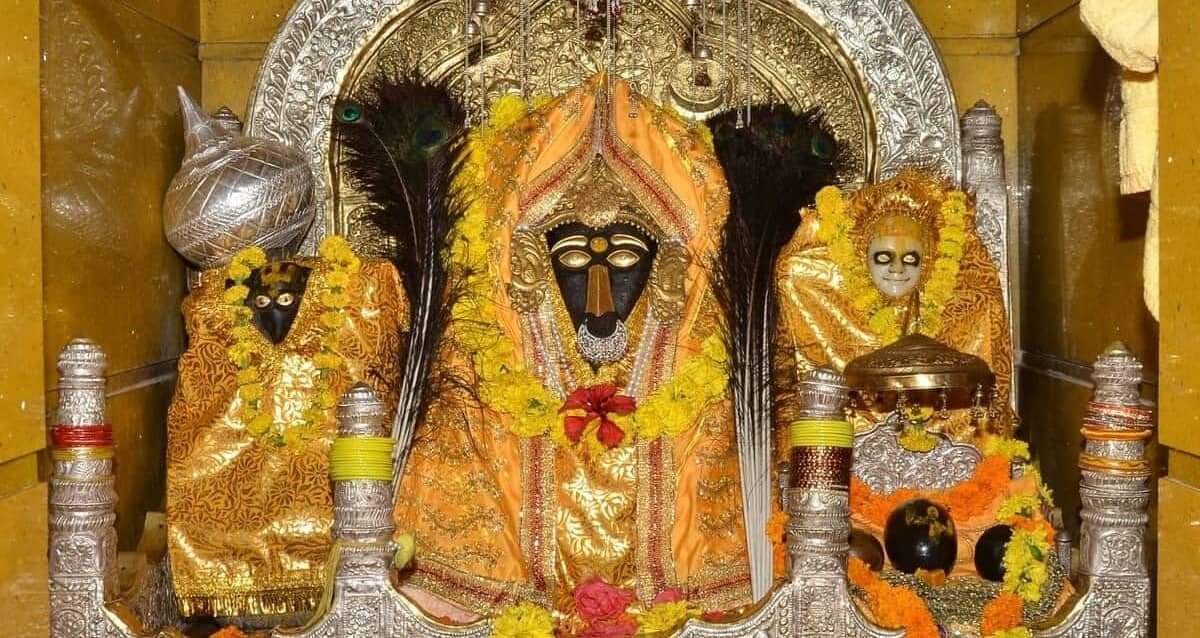Jwala Devi Temple is a Hindu temple located in the Kangra district of Himachal Pradesh, India. The temple is dedicated to Goddess Jwala ji, who is believed to be an incarnation of Goddess Durga. Jwala ji is a revered Hindu pilgrimage site in the Indian state of Himachal Pradesh. It is a place of great spiritual importance and attracts thousands of devotees every year. The temple’s unique eternal flame and its association with Goddess Durga is a must-see for anyone interested in Hindu mythology and culture.
History of Jwala Devi Temple
Jwala Devi temple is believed to be more than 1000 years old. According to legend, Goddess Sati’s tongue fell at this place after Lord Vishnu’s Sudarshan Chakra dismembered her body. This temple is famous for its Akhand Jyoti. It is said that it has been burning continuously since ancient times. Jwala ji is considered to be one of the 51 Shaktipeeths in Hindu mythology. Devotees come from all over the world to visit the temple. The flame is said to have been burning continuously since ancient times and is believed to represent the goddess herself.
The origin of the flame is surrounded by mystery and legend. Scientists have found that it is ignited by natural gas coming out of the rocks in the temple complex. Flame is thus a natural phenomenon, not a man-made fire. The temple became a center of resistance and rebellion during the Indian independence struggle against British colonial rule. It was here that freedom fighter Lala Lajpat Rai delivered his famous speech in 1920. In which Indians were called upon to rise against their colonial oppressors.
The temple was rebuilt after a devastating earthquake. The temple complex was destroyed in a major earthquake in the region in 1905. It was later rebuilt by the Maharaja of Kangra. The temple is not just a religious place, but also a center of culture and art. It has a long history of arts patronage and has been the site of many music and dance performances over the years.
Jwala ji Architecture and Festivals
The temple is built in the traditional North Indian style of architecture, with a sloping roof and a wooden frame. The temple complex consists of several small shrines, with the main shrine housing the Eternal Flame. Jyoti is considered a form of the goddess, and devotees offer ghee and other offerings to Jyoti. This temple is especially famous during the Navratri festival. This festival is celebrated twice a year in the months of April and October. The temple is visited by thousands of devotees during this time.
Near Places Jwala JI
There are some great places around Jwala Devi mandir that you can visit. Kangra Fort is a historical fort located about 30 km from Jwala Devi Mandir. The fort dates back to the 4th century BC and has been the site of many battles over the centuries. Chamunda Devi Temple is a famous temple situated at a distance of about 25 km from Jwala Mata Temple. Masroor Rock Cut Temples are a series of ancient rock-cut temples located about 50 km from Jwala Devi Temple.
These temples are believed to date back to the 8th century and were carved out of solid rock. Bir and Billing is a popular destination for adventure sports like paragliding and trekking. It is situated at a distance of about 70 km from Jwala Mata Mandir. Dharamshala: Dharamshala is a beautiful town located about 50 km from Jwala Ji.
Best Hotels in Jwalaji Mandir
There are some of the best hotels near Jwala ji Mandir. Hotel Ashiana Regency has located just 2 km from Jwala Ji. The hotel is located just 2 km from Surabhi Jwala Mandir. Jwalaji Clarks Inn is a modern hotel located about 10 km from Jwala Ji. Nadaun Hotel This is a budget-friendly hotel which is located about 15 km from Jwala Devi Mandir. Grand Raj It is a luxury hotel located about 30 km from Jwala Devi.
How to Reach
Jwala Devi Temple is located in Jwalamukhi town, which is about 34 km from Kangra city. The temple is easily accessible by road. And can be reached by bus or taxi from Kangra or other nearby cities.









